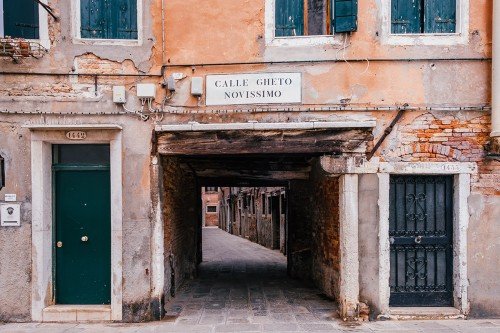Unveiling the Beauty of the Venetian Language: Exploring Origins, Significance, and Preservation.



Introduction:
Welcome to the captivating world of the Venetian language, a unique linguistic gem nestled in the enchanting region of Veneto, Italy. With its rich history, cultural significance, and vibrant local identity, the Venetian language offers a fascinating glimpse into the region's past and present. In this blog post, we will explore the origins, characteristics, and significance of the Venetian language, shedding light on its beauty and distinctiveness.
Origins and Historical Significance:
The Venetian language traces its roots back to the ancient Veneti people, who inhabited the northeastern part of Italy during the pre-Roman era. As the Venetian Republic emerged as a maritime power in the Middle Ages, the language flourished and became an integral part of the region's identity. Venetian served as the lingua franca of the Venetian Republic, which encompassed not only the city of Venice but also vast territories along the Adriatic Sea and parts of northern Italy.
The origins of the Venetian language can be traced back to the ancient Veneti people, who inhabited the northeastern part of Italy during the pre-Roman era. These early inhabitants spoke a distinct language that eventually evolved into what we now know as Venetian.
During the Middle Ages, the city-state of Venice, known as the Venetian Republic, emerged as a powerful maritime force in the Mediterranean. The Republic expanded its influence and territories, encompassing not only the city of Venice but also parts of northern Italy and territories along the Adriatic Sea. As a result, the Venetian language became widely spoken throughout these territories and served as the lingua franca of the Venetian Republic.
The Venetian Republic reached its peak in the 15th and 16th centuries, becoming a center of trade, commerce, and culture. During this golden age, the Venetian language flourished, finding expression in literature, poetry, theater, and everyday conversation. Venetian dialects were spoken not only by the common people but also by the nobility and intellectuals.
The maritime nature of Venice greatly influenced the Venetian language. The Republic's extensive trade networks and connections with various cultures led to the incorporation of words, phrases, and linguistic influences from different regions. Venetian borrowed vocabulary from Mediterranean languages such as Greek, Turkish, Arabic, and the languages of neighboring regions like Friulian and Lombard.
Venetian's historical significance lies in its role as a symbol of regional identity and autonomy. The Venetian language, along with the Republic's distinct political system, architecture, and art, contributed to a unique Venetian cultural identity. The use of Venetian was not only a linguistic preference but also a means of asserting local pride and distinguishing oneself from other Italian regions.
However, the decline of the Venetian Republic in the late 18th century and the subsequent dominance of standardized Italian as the national language of Italy had a profound impact on the Venetian language. Italian became the language of education, administration, and culture, while Venetian gradually lost its prominence in official settings.
Today, the Venetian language faces challenges due to the predominance of Italian and the influence of globalization. The younger generation tends to speak Italian as their primary language, and Venetian is often relegated to informal and familial contexts. Nevertheless, efforts are being made to preserve and revitalize the Venetian language. Cultural associations, language academies, and educational initiatives aim to raise awareness and promote the study and use of Venetian among both locals and visitors.
The Venetian language's historical significance lies not only in its linguistic characteristics but also in its role as a symbol of regional pride, cultural heritage, and the legacy of the Venetian Republic. Understanding and appreciating the origins and historical significance of the Venetian language allows us to delve into the rich tapestry of the Veneto region's history and cultural identity.
Distinctive Characteristics:
Venetian is a Romance language, belonging to the Italo-Dalmatian subgroup. It shares similarities with other regional languages such as Friulian, Ladin, and Trentinian, but retains its own unique qualities. One of the most striking features of Venetian is its pronunciation, characterized by soft, melodic tones and a musical cadence that sets it apart from other Italian dialects. Additionally, Venetian incorporates a rich array of vocabulary, expressions, and idioms that reflect the region's historical, cultural, and maritime heritage.
Cultural Significance:
Beyond its linguistic aspects, the Venetian language plays a pivotal role in preserving and promoting the cultural heritage of the Veneto region. It serves as a means of expression for local traditions, folktales, songs, and proverbs, preserving the distinct Venetian identity that has been shaped over centuries. The language is also celebrated through various festivals, literary works, and theater performances, where the Venetian dialect takes center stage, captivating audiences and connecting them to their roots.
Challenges and Preservation Efforts:
Like many regional languages, Venetian faces challenges in the modern era. The rise of standardized Italian and the global influence of English have led to a decline in the everyday use of Venetian. However, efforts to preserve and revitalize the language are underway. Organizations, cultural institutions, and passionate individuals are actively working to promote the study and use of Venetian through educational programs, publications, and digital platforms. These endeavors are crucial in ensuring the survival and continued appreciation of this linguistic treasure.
Conclusion:
The Venetian language stands as a testament to the rich tapestry of cultures, histories, and traditions that have shaped the Veneto region. Its melodic sounds, distinct vocabulary, and cultural significance make it a captivating linguistic treasure. As we celebrate the Venetian language, let us acknowledge its unique contribution to the mosaic of languages and cultural diversity in Italy. Through preservation efforts and a renewed appreciation for its beauty, the Venetian language will continue to thrive, carrying the spirit of the Veneto region into the future.
Recent Posts

Understanding Translation Serv...

Agenzia di Traduzione a Roma: ...

Die Essentielle Rolle von Übe...

Die Essentielle Rolle von Übe...

Die Essentielle Rolle von Übe...

La Traduction Assermentée: Un...
Share it.
© Copyright 2022 LLC
